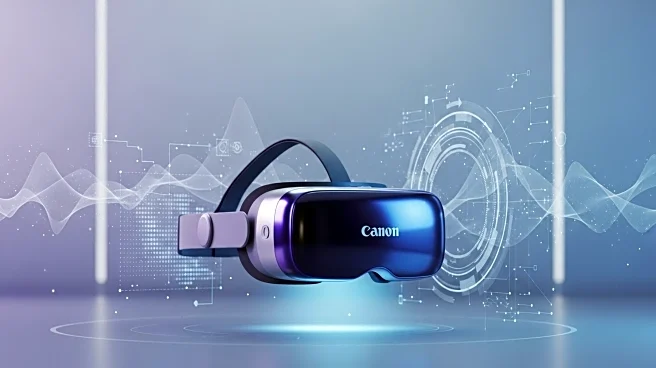What is the story about?
What's Happening?
In 2025, the augmented reality (AR) industry is experiencing significant changes as major companies transition from prototypes to retail-ready products. Meta has launched its Ray-Ban Display glasses in the U.S. with a price tag of $799, marking a move towards more accessible consumer AR technology. Additionally, Meta has introduced a second-generation Ray-Ban line focused on battery life and camera improvements, priced at $379. Samsung is also entering the market with a leaked Android XR headset expected to ship in 2025, increasing competition in the headset space. Meanwhile, SiNGRAY has announced its G2 headset, utilizing birdbath optics for enterprise applications. Apple is reportedly pausing its Vision Air project to concentrate on smart glasses with displays, indicating a strategic shift towards sleeker eyewear. Meta is further pushing its AR hardware through pop-up shops to provide hands-on demos, emphasizing the importance of physical retail in their strategy.
Why It's Important?
These developments in the AR sector are crucial as they signal a shift towards more consumer-friendly and enterprise-focused AR solutions. The introduction of Meta's Ray-Ban Display glasses and Samsung's upcoming headset suggests increased competition, which could lead to better features and lower prices for consumers. The strategic moves by Apple and SiNGRAY highlight a growing focus on practical applications of AR in both consumer and enterprise markets. This evolution in AR technology could significantly impact industries such as retail, training, and field services by providing more immersive and efficient tools. The emphasis on retail demos by Meta underscores the importance of consumer experience in driving adoption, potentially accelerating the mainstream acceptance of AR technology.
What's Next?
As these AR products hit the market, consumer reactions and retail performance will be critical in determining their success. The industry will likely see further developments in AR technology, with companies refining their products based on consumer feedback and competitive pressures. The focus on retail demos suggests that companies will continue to invest in physical retail experiences to boost sales. Additionally, as more players enter the AR space, the market could see a rapid expansion of app ecosystems and a push towards more integrated AR solutions. The strategic decisions by major companies like Apple and Meta will likely influence the direction of AR technology and its adoption across various sectors.
















